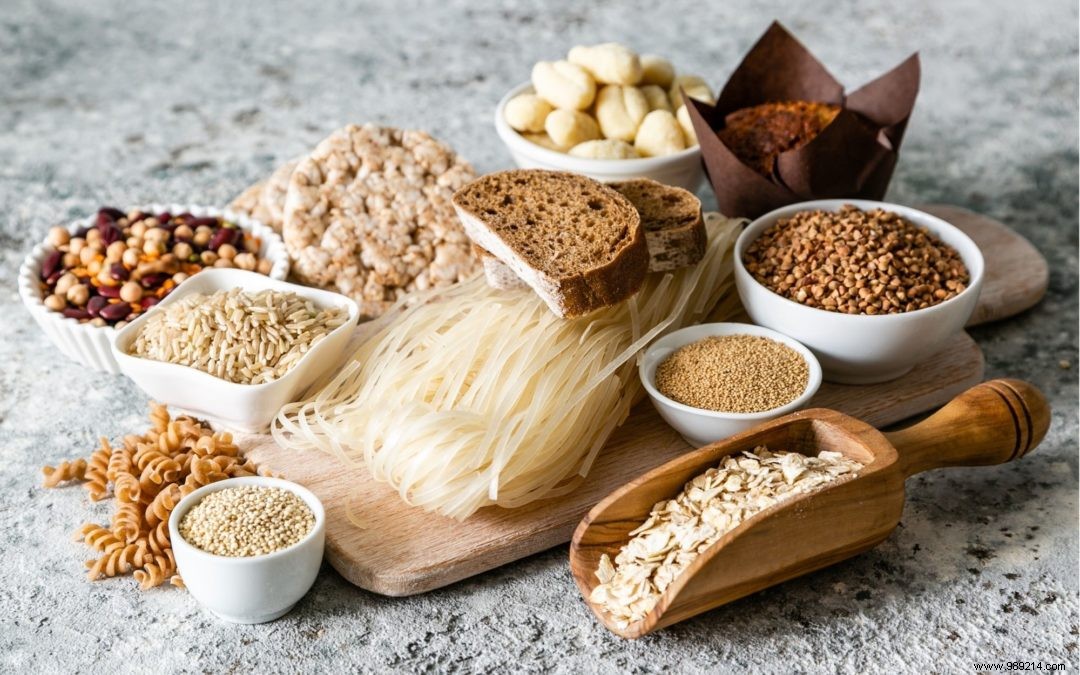
Gluten is a fraction of the protein in certain cereals such as wheat, barley, oats and rye. Gluten is what gives the elasticity and "stickiness" to a dough made from flour and water.
Some people are gluten intolerant; it is therefore necessary to adapt the diet and to make an "exclusion diet".
In intolerant subjects, ingestion of gluten leads to inflammation and damages the intestinal wall; there is destruction of the intestinal villi. Due to this, malabsorption of certain nutrients, vitamins and minerals is observed.
It is absolutely necessary to avoid foods that contain wheat, barley, oats, rye, in all their forms.
What is more difficult for us Europeans is that wheat is one of the staples of our diet; it is found in bread, pasta, all foods with wheat flour. Some people are also sensitive to corn, but this is much rarer; if so, it will also have to be removed from the diet.
Wheat, barley, oats, rye
"starch"
"vegetable protein"
"malt extract"
"starch material"
You can consume:
You can find "gluten-free" foods in specialized stores, such as bread, rusks, pasta...
The taste and texture in the mouth are different compared to the same products with gluten, but this allows the less eating bread and pasta.
Meat, fish, eggs
Fresh vegetables, plain frozen
Fresh fruits, plain frozen
Pulses (excluding abdominal pain)
Milk
Corn, rice, buckwheat, apple soil
Soy
"Cereals containing gluten
Wheat-based glucose syrups including dextrose(1)
Wheat-based maltodextrins(1)
Barley-based glucose syrups
Cereals used in distillates for alcohols
(1) And derived products, insofar as the processing they have undergone is not likely to raise the level of allergenicity assessed by the EFSA for the commodity from which they are derived"
Please note that some medications may contain gluten; Check with your doctor and pharmacist for each medication taken or new medication prescribed. If you buy a medicine without your doctor's advice (eg against pain, headaches, etc.), then tell the pharmacist that you are gluten intolerant.
As soon as the disease is diagnosed, and on proof, financial assistance can be provided:
Find out more